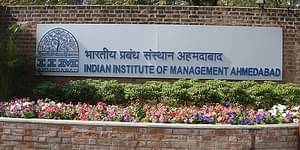MBA in Accounting
MBA in Accounting Overview
MBA in Accounting is a full-time two-year postgraduate course that focuses on developing an in-depth understanding of disciplines including accounting, marketing, taxation, finance, human resource management, etc. Graduates of MBA in Accounting concentration typically have positions as chief compliance officers, accounting educators, chief financial officers, controllers, environmental accountants, etc.
To be eligible for this course, students must pass entrance exams like MAT, CAT, UPSEE, XAT, MAH CET, etc. In India, some colleges deliver this course in online mode, while most colleges follow an offline mode of education. Some of the top colleges offering these courses are SJMSOM IIT Bombay, Parul University, Prestige University, Bharati Vidyapeeth Deemed University, etc. On average, the course fee for top colleges ranges from around INR 1.4 to 7 LPA. Graduates in this field earn decent initial salaries of INR 3.5 to 15 lakhs annually.
Table of Contents
- MBA in Accounting Overview
- MBA in Accounting Highlights
- Why Choose MBA in Accounting?
- Types of MBA in Accounting
- Entrance Exams for MBA in Accounting
- MBA in Accounting Eligibility Criteria
- How to Get Admission for MBA in Accounting?
- Popular MBA in Accounting Colleges in India
- MBA in Accounting Study Abroad
- MBA in Accounting Fees
- MBA in Accounting Syllabus
- Course Curriculum for MBA in Accounting
- FAQs about MBA Accounting
- MBA in Accounting Career Options and Job Prospects
- MBA in Accounting Salary
- Skills for MBA in Accounting
MBA in Accounting Highlights
Check all the important details about MBA in Accounting from the table given below.
Level |
Postgraduate |
|---|---|
|
Duration |
2 Years |
|
Exam Type |
Semester |
|
Minimum Qualification Requirement |
Bachelor Degree |
|
Average Initial Salary |
INR 4 to 10 lacs per annum |
|
Selection Process |
Entrance Exam |
|
Minimum Aggregate Score Requirement |
45%-55% |
|
Major Recruiters |
Wipro Technologies Ltd., Tata Motors, Bharat Sanchar Nigam Limited (BSNL), Genpact, Tata Consultancy Services Limited, WNS Global Services, Heavy Engineering Corporation Limited (HEC Ltd) and National Small Industries Corporation Limited (NSIC). |
Why Choose MBA in Accounting?
There could be numerous reasons behind choosing an MBA in Accounting. Here are a few of them:
Increased Salary: Strategic planning and leadership are only two of the numerous employable talents that an MBA teaches. According to Payscale, as of April 2022, MBA graduates in finance and accounting make an extra USD 20,000 a year more than accountants with bachelor's degrees do on average.
Job Diversity and Security: A marketing, business, and finance focus are prevalent in MBA in Accounting courses. Graduates of this advanced education generally have a variety of professional work opportunities available to them.
Certification Preparation: The MBA in accounting prepares students for a career as a certified public accountant (CPA). The graduate can also earn other certifications, such as a certificate in internal auditing or a certificate in management accounting.
Types of MBA in Accounting
MBA in Accounting is one of the top MBA programmes after bachelors. MBA in Accounting is offered to students in different modes that will suit their convenience. The three popular types of MBA in Accounting are:
Full-Time MBA in Accounting Courses
Students who are opting for a full-time MBA in Accounting must attend regular classes, submit assignments, take part in class activities and appear for offline exams from the campus. They have to diligently follow the course curriculum. Students taking part in full-time mode immensely benefit from face-to-face classroom interaction with teachers and peers and get vast networking opportunities.
Part-Time MBA in Accounting Courses
Students who cannot commit to full-time MBA programmes can opt for a part-time MBA in Accounting. This enables them to fulfil their professional life besides getting the full benefits of the MBA programme. However, the course duration may take a little longer than usual.
Distance/Online MBA in Accounting Courses
The main benefit of distance or online MBA in Accounting is that it can be pursued from anywhere irrespective of your location. The course takes two to three years to complete and is specially designed for those who are unable to attend full-time or part-time MBA.
Entrance Exams for MBA in Accounting
Candidates interested to take admission for MBA in Accounting must take the various institute-level, state-level and national-level entrance examinations. The entrance exams will be conducted mostly in online mode. Some of them can take place even in offline mode. Students are required to take any one or more entrance tests depending on their choice of the institute.
They can make a list of their preferred MBA colleges for Accounting and then apply for the tests accordingly.
Here are some of the popular entrance exams for an MBA in Accounting:
Entrance Exams | Full Forms |
|---|---|
CAT | Common Admission Test |
MAT | Management Aptitude Test |
XAT | Xavier’s Aptitude Test |
NMAT by GMAC | NMIMS Management Aptitude Test |
SNAP | Symbiosis National Aptitude Test |
CMAT | Common Management Admission Test |
IBSAT | IBS Aptitude Test |
MBA in Accounting Eligibility Criteria
In India, the eligibility criteria for MBA in Accounting courses may vary from one college or university to another. The detailed eligibility criteria are discussed below:
- Applicants must hold a bachelor's degree with a minimum score of 50% or equivalent from a recognized institution. It could preferably be in business, accounting, or business administration with a focus on accounting.
- Applicants must sit for university-level exams like MAT, CAT, UPSEE, XAT, MAH CET, etc.
- Depending on the type of college/university, an average of two to three years of professional work experience may be taken into consideration.
MBA in Accounting Admission Process
Admission to the two year MBA In Accounting course will be done on the basis of the scores in the qualifying degree. Colleges will prepare a selection list on the basis of candidates'individual scores in bachelor degree. Selected candidates will be called for a personal interview and group discussion. Candidates will have to perform well in both the rounds to get admission to any college offering an MBA in Accounting. Once the candidate has been selected, he/she can visit the college to confirm his/her admission.
MBA in Accounting Entrance Exam
Most of the colleges will include the scores of the Common Admission Test (CAT) while providing admission to this course. There are many other entrance exams that are conducted for admission to the programme. Candidates can check the admission process of the college to know the details about the entrance exam accepted by the college. Some of the entrance exams for admission to an MBA in Accounting are listed below.
Exam |
Type of Colleges Accepting the Exam |
|---|---|
|
UPSEE (Uttar Pradesh State Entrance Exam) |
Institutes affiliated with Uttar Pradesh Technical University |
|
TANCET (Tamil Nadu Common Entrance Test) |
MBA colleges in Tamil Nadu |
|
MAH CET (Maharashtra Common Entrance Test) |
MBA colleges in Maharashtra |
|
XAT (Xavier Aptitude Test) |
SPIJMR, LIBA, TAPMI, Great Lakes Institute of Management, and many other colleges. |
|
MAT (Management Aptitude Test) |
MBA colleges in India |
|
CAT (Common Admission Test) |
IIMs and other top management colleges in India |
How to Get Admission for MBA in Accounting?
Students willing to get admission to MBA in Accounting can take direct admission or appear for an entrance examination. Those taking direct admission will be evaluated on the basis of their academic profile and personal interview. On the other hand, in the entrance exam based method, the several stages involved in admission for MBA in Accounting are:
- Students must check their eligibility criteria. Besides checking the MBA Accounting course fees, course syllabus and curriculum and placement opportunities are also important.
- If they are satisfied with the course structure, they can go on to appear for an entrance test like CAT, MAT, XAT, SNAP, GMAT etc. They must ensure that the colleges they are interested to apply to accept these test scores.
- Colleges will create a list of candidates based on test scores and previous academic qualifications. After that, they will be called for further selection rounds.
- The selected candidates will have to complete the formalities related to admission.
Popular MBA in Accounting Colleges in India
Multiple colleges and business schools in India offer MBA in Accounting courses. Candidates can choose any government or private college for MBA in Accounting admissions. Most of the colleges provide a great return on investment (ROI) and placement opportunities. Students must enrol in colleges that will provide them with good classroom teaching and practical training.
The table below lists some of the popular MBA in Accounting colleges in India:
MBA Accounting Colleges | Location |
|---|---|
Kolkata | |
Kozhikode | |
Bengaluru | |
Jamshedpur | |
Lucknow | |
Ahmedabad | |
New Delhi | |
Mumbai | |
Manipal | |
Bangalore |
MBA in Accounting Study Abroad
Pursuing MBA in Accounting abroad thoroughly prepares students to address accounting challenges in organisations. It provides the needed coursework for graduates to understand the finances of an organisation and gain a broader perspective of financial reporting, analysis, making strategic investment decisions and identifying risks. The MBA in Accounting program combines business acumen and management practices while concentrating on advanced accounting.
Here are some of the top MBA in Accounting study abroad colleges and their location:
Name of MBA Accounting College Abroad | Country |
|---|---|
University of North Texas | United States |
University of Hartford | United States |
Washington State University | United States |
Pace University | United States |
Brock University | Canada |
University of Windsor | Canada |
University of Alberta | Canada |
University of South Australia | Australia |
Victoria University | Australia |
University of Technology Sydney | Australia |
Central Queensland University | Australia |
Dublin Business School | Ireland |
Griffith College | Ireland |
University of Derby | United Kingdom |
Bangor University | United Kingdom |
Unitec Institute of Technology | New Zealand |
Amity Global Institute | Singapore |
MBA in Accounting Fees
MBA in Accounting has always been a much sought after MBA specialisation. A career in it can reward the organisations as these professionals help to make smart decisions. Therefore it is necessary that the courses are provided by top-notch faculties who use several methodologies to give expert training to prospective students. The following table gives an indication of the average fees for the MBA in Accounting colleges in India.
MBA Accounting Colleges | Average Fees (in INR) |
|---|---|
Indian Institute of Management (IIM) Kolkata | 27,00,000 |
Indian Institute of Management (IIM) Kozhikode | 20,50,000 |
Indian Institute of Management (IIM) Bengaluru | 26,00,000 |
Xavier School of Management | 14,00,000 |
Indian Institute of Management (IIM) Lucknow | 20,75,000 |
Indian Institute of Management (IIM) Ahmedabad | 23,00,000 |
Faculty of Management Studies | 27,60,000 |
K J Somaiya Institute of Management | 21,00,000 |
T. A. Pai Management Institute | 17,00,000 |
NSB School of Management Studies | 7,20,000 |
MBA in Accounting Syllabus
Candidates can check the table provided below to know all the topics which will be taught to them in two years. The syllabus of MBA in Accounting includes the following topics:
Basics of Marketing |
Management Information Systems |
|---|---|
|
Financial Management |
Entrepreneurship Development & Project Management |
|
Human Resource Management |
International Business Management |
|
Information Technology |
Research Methodology |
|
Legal Aspects of Business |
Materials & Logistics Management |
|
Management Accounting |
Financial Management |
|
Management Information Systems |
Business & Environmental Management |
|
Managerial Communication |
Economic Environment of |
|
Managerial Economics |
Human Resource Management |
|
Manufacturing & Operations Management |
Current Trends in Management |
|
Marketing Management |
Business & Environmental Management |
|
Materials & Logistics Management |
Economic Environment of |
|
Organizational Behavior & Principles & Practices of Management |
Marketing Management |
|
Research Methodology |
Manufacturing & Operations Management |
|
Statistical & Quantitative Methods |
Course Curriculum for MBA in Accounting
Offered over two years in four semesters, MBA in Accounting offers specialist knowledge and skills along with a deep understanding of accounting trends. Students have to execute case studies and business plans, assess and complete research projects and adapt knowledge to evaluate creatively the business decisions through internship programmes. They gain an understanding of accounting, economics and finance.
Students get to select elective courses in the second year. At the end of the second semester, the students will take six weeks of Summer Training in a Professional Organization. After completion of the training, the student will present a report on the basis of their understanding.
FAQs about MBA Accounting
Can I study MBA in Accounting abroad?
Yes, Indian aspirants can study MBA in Accounting abroad. One of the most crucial topics in contemporary global business is accounting and accountancy. It is no wonder that accounting is one of the most reliable and fulfilling professions anyone can pursue as skilled accountants are at the core of any successful firm.
What is the scope for higher education after MBA in Accounting?
There is a broad scope for higher education after MBA in Accounting if a student wishes to pursue research-related education and boost their career prospects. Some of them are Chartered Accountancy (CA), Chartered Financial Analyst course (CFA), Cost Management Accounting (CMA), and PhD Accountancy.
What is MBA in Accounting course structure?
Core subjects make up the course structure for the MBA in Accounting. The course lasts for two years and includes subjects, assignments and papers. Specific masters-related topics are also covered in the course curriculum. The structure of the course includes:
- Assessment
- Core Subjects
- Elective Subjects
- IV Semesters, etc.
What are the major areas of recruitment for an MBA in Accounting?
There are a variety of major areas of recruitment for an MBA in Accounting. The following are a few of them:
- Banks
- Business Complexes
- Commercial Hubs
- Consulting Firms
- Economics
- Educational Institutes
- Financing Sector
- Indian Civil Services
- Indian Economic Services
- Insurance Companies
- Public-Sector Undertakings (PSUs), etc.
What are the best reference books for MBA in Accounting?
There are many best reference books for an MBA in Accounting available for students to broaden their understanding of this sector. The following are some of them:
- The Ten-Day MBA 4th Edition by author Steven A. Silbiger
- The Personal MBA: Master the Art of Business by author Josh Kaufman
- Everything I learned a $200,000 MBA In Marketing by author Ritesh Chaube, etc.
Are projects compulsory in MBA in Accounting courses?
Yes, projects are compulsory in MBA in Accounting courses for all students at the end of their final year. Some popular project topics for this course include:
- Use Of Accounting Ratios in Business Decisions.
- Taxation As a Significant Tool for Economic Development.
- Impact Of International Financial Reporting Standards on Earnings Management, etc.
Which teaching methodologies and techniques are used in MBA in Accounting courses?
Both traditional lecture-based and practical training teaching methodologies and techniques are used in MBA in Accounting courses. These are intended to provide students with access to all of the resources and amenities that will be available to them after they finish this course. Among the most common methods and strategies of teaching are:
- Seminars
- Lectures
- Group Discussions
- Examinations
- Assessments, etc.
Are there any elective subjects for MBA in Accounting?
Yes, there are elective subjects for MBA in Accounting that students can choose as per their interests. The following are the elective subjects for this course:
- Organizational Behavior
- Managing for Sustainability
- Management of Change
- Leadership – A Critical Perspective
- Investments Analysis
- International Human Resource Management
- Financial Accounting
- Customer Behavior
- Corporate Finance, etc.
What are the skills required for MBA in Accounting?
To advance in their careers, MBA Accounting graduates need a broad range of intricate and interpersonal skills. They must always push themselves to go beyond their comfort zone and gain as much expertise as they can. A few of the skills required are:
- Interpersonal Communication
- Mathematical Ability
- Qualitative Analysis Ability
- Quantitative Data Interpretation
- Tactical Ability, etc.
Can MBA in Accounting fetch students a rewarding career?
Yes, MBA in Accounting can fetch students a rewarding career since this field of study is stimulating and enthralling. Furthermore, graduates in this field are expected to take on a broad range of tasks, making the roles extraordinarily dynamic and complex.
What MBA in Accounting is all about?
MBA in Accounting is all about developing the management and/or managerial skills needed to be required to excel in business. It covers topics such as interim accounting, financial analysis, company and personal taxation, as well as leadership and organisational behaviour.
What are the subjects for MBA in Accounting?
Subjects for MBA in Business Analytics are divided into two categories: core and elective. The following are the core subjects of this course:
- Statistical & Quantitative Methods
- Organizational Behavior and Leadership
- Materials & Logistics Management
- Marketing Concepts and Commercialisation
- Manufacturing & Operations Management
- Financial Accounting
- Managerial Economics
- Managerial Communication
- Management Information Systems
- Management Accounting
- Legal Aspects of Business
- Information Technology
- Human Resource Management
- Financial Management, etc.
What are the top colleges for MBA in Accounting abroad?
There are many top colleges for MBA in Accounting abroad. Some of them include the following:
- West Virginia University
- University of Phoenix
- University of Chicago
- The University of Texas at Dallas
- Sloan School of Management, MIT
- Rochester Institute of Technology
- National American University
- Columbia Business School, Columbia University
- Broward International University, etc.
What is an MBA in Accounting?
MBA in Accounting is a full-time two-year postgraduate course that focuses on developing an in-depth understanding of disciplines including accounting, marketing, taxation, finance, human resource management, etc. Graduates of this field typically have positions as chief compliance officers, accounting educators, chief financial officers, controllers, environmental accountants, etc.
Is a distance/online MBA in Accounting available?
Yes, a distance/online MBA in Accounting is available for individuals who are unable to attend regular/full-time or on-campus classes. A few colleges or institutions in India like D Y Patil Vidyapeeth Pune, IMTS Institute, etc. offer distance/online courses.
How to apply for MBA in Accounting courses?
Candidates may apply for MBA in Accounting courses either offline or online after they have obtained their entrance exam score reports. Generally, Admission Committee decides whether to accept an applicant for a particular course based on their performance in all preliminary and exam rounds.
How to get admission to MBA in Accounting courses?
Students can get admission to MBA in Accounting courses on the basis of merit or through a national or state-wise entrance exam. However, several colleges offer admission through management quota or institution-based exams which students have to clear. In India, some colleges deliver this course in online mode, while most colleges follow an offline mode of education.
When can I pursue MBA in Accounting course?
Candidates can pursue MBA in Accounting course after they have completed a bachelor's degree with a minimum score of 50% or equivalent from a recognised institution. It could preferably be in business, accounting, or business administration with a focus on accounting.
Is MBA in Accounting considered a good career in India?
Yes, MBA in Accounting is considered a good career in India. Furthermore, for current CPAs who want to advance their careers into upper management, who want to pursue a career change, or who want to become a Chief Financial Officer, an MBA with an accounting specialisation is a great alternative (CFO).
Is an MBA in Accounting course tough?
Yes, it can be said that MBA in Accounting course is tough because of the level of complexity of maintaining financial transactions pertaining to a business. Especially, if a student is weak in maths or they have not completed any advanced mathematics course, pursuing an MBA in Accounting course could be a little tough.
What can I do after pursuing an MBA in Accounting?
There is a wide range of career prospects and job opportunities available for students after pursuing an MBA in Accounting. These include the following:
- Statistician
- Research Scholar
- Research Analyst
- Lecturer
- Enumerator
- Econometrician
- Data Interpreter
- Data Analyst
- Biostatistician
- Assistant Professor, etc.
I want admission to an MBA in Accounting. Do I have to clear any exams for that?
Yes, students must clear any national, state, or university-level exams if they want admission to an MBA in Accounting. These include entrance exams like MAT, CAT, UPSEE, XAT, MAH CET, etc. Other exams may include the NMIMS Management Aptitude Test (NMAT), Common Management Admission Test (CMAT), Uttar Pradesh State Entrance Examination (UPSEE), Goenka Aptitude Test for Admission (GATA), etc.
What is the duration of the course MBA in Accounting?
In India, the duration of the course MBA in Accounting is two years full-time; which is mostly offered in offline schooling as compared to online mode. Students who take this course will become competent business professionals due to its Business and Accounting focus.
What is the average fee for the course MBA in Accounting?
The average fee for the course MBA in Accounting ranges from around INR 1.4 to 7 LPA. Graduates in this field earn decent initial salaries of INR 3.5 to 15 lakhs annually. After completing the course, students can choose from a wide range of lucrative career options.
What are the top colleges offering MBA in Accounting courses in India?
The top colleges offering MBA in Accounting courses in India are Apoorva Institute of Management And Science (Karimnagar), Bharati Vidyapeeth Deemed University (Pune), ICFAI (Ranchi), MINT (Jaipur), Parul University (Vadodara), PIMR (Indore), Prestige University (Indore), RVS Institute of Management Studies and Research (Coimbatore), etc.
Related Questions
Popular Courses
MBA in Accounting Career Options and Job Prospects
After completing an MBA in Accounting, candidates can search for opportunities in areas such as corporate accounting, government and non-profit organizations, taxation, government and non-profit organizations and finance. There are many job opportunities available after MBA in Accounting. Besides this, those who are interested in applying for a job can pursue further studies in accounting.
Candidates can expect an average salary of 4 to 5 lakh per annum after completing the program. Some of the major profiles where they can apply are listed below.
- Equity Analyst
- Forensic Accountants
- Audit Manager
- Accounting Firm Partner
- Chief Accounting Officer
- Accounts Receivable Clerk
- Accountant
- Accounting Associate
- Accounting Manager
- Finance Manager
- Financial Analyst
Some employment areas where candidates may apply are
- Public Accounting
- Tax
- Audit
- Budget Analysis
- Management Accounting
- Financial
- Real Estate Finance
MBA in Accounting Salary
One of the biggest advantages of an MBA in Accounting graduates is that they can be very flexible with their careers. They can choose traditional paths of accounting jobs like accountants or tread on lesser-trodden paths. There are several job opportunities in the private and government sectors. Given below is a list of the job roles and the average salary earned:
Job Role | Description | Average Annual Salary (in INR) |
|---|---|---|
Management Analyst | They work as consultants to a variety of businesses. Corporations need people in these job roles to assess their businesses to become more efficient. | 9.9 lakhs |
Financial Manager | They strive towards developing financial goals for a company. They oversee and direct financial well-being and the development of businesses. | 12 lakhs |
Chief Financial Officer | They assess the finances of a company to check if they are taking the right financial decisions. They lead to the growth and financial realisation of a company. | 35 lakhs |
Internal Audit Director | They are responsible to prepare and implement a risk-based audit plan to assess, report and make suggestions to improve the operational and financial activities of a company. | 9.1- 25 lakhs |
Cost Accountant | They make budgets for companies and help understand and control the cost of doing business for the company. They also guide with financial planning and investing. | 12 lakhs |
Skills for MBA in Accounting
MBA in Accounting involves systematic recording, summarizing, analysis and reporting of data to enable businesses to maintain and keep financial information in order. Pursuing a professional journey in accounting involves problem-solving, advising, management and planning skills for clients seeking financial help. The person also requires mathematical and organizational skills and knowledge. They must be well-versed in technology, collaboration and management theory and practices.
The core skills required for MBA in Accounting are:
- Ability to read financial statements like balance sheets, income statements, annual reports, cash flow statements and etc.
- Ability to analyse and generate financial statements.
- Ability to make financial forecasts by predicting future revenue, cash flow and expenses.
- Developing data-driven finances.
- Courses
- MBA in Accounting


















